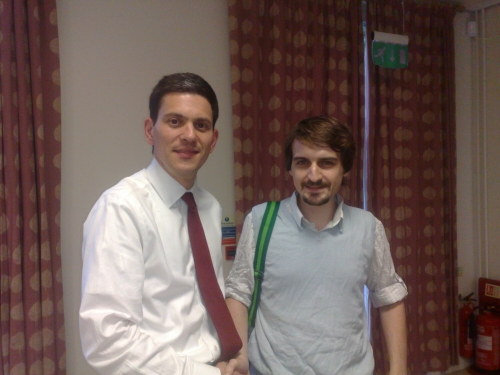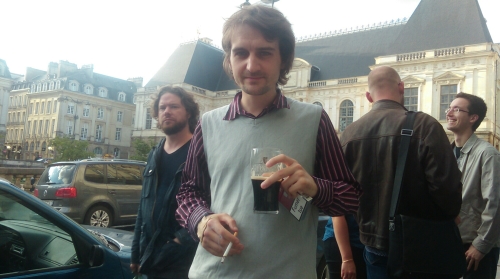Years ago, I only used to date large women. I don’t know why it was. It wasn’t a conscious choice. It was just that the people I drifted towards and got on with were larger in proportion than the average person. I was famous for it. If I found someone new my next door neighbours would always ask the same question “Is she big?” and I have absolutely no idea why it was. Now it is the same with foreign girls. I don’t know why. I wish I could tell you but I simply don’t know. My last British girlfriend wasn’t even English. She was Scottish but before her the last English girl I dated was five years ago. Since then I have, to put it diplomatically, “sampled the international buffet”.
My specific taste has, for some reason, been French. Most prominent in the litany of Hong Kongers and Hungarians, Greeks and Greenlanders, was a year long relationship that I had with a French woman. I lived in France, worked in France, spoke French, fluently (still do) and very much saw my French identity as a blank canvas on which the country would paint my experiences of it.
I even joked recently about “what am I going to do for girlfriends post Brexit?”

My present girlfriend is from Italy. I have obscured her face because I have yet to tell her about my blog and the crazy ramblings therein.
My most recent fancy is from Italy. I will say nothing of her other than she voted for a party in the recent Italian elections that supports Italy leaving the Eurozone and the European Union. I didn’t vote in the referendum. I find it deeply disturbing how many people are genuinely troubled at the prospect of us leaving the European Union. For those people I have a solution that I would like to offer.
Myself and mi amore were in the pub. I went to the toilet and when I came back, a blonde, young girl, in her early twenties had taken my place where I was stood next to my girlfriend at the bar. I cracked the joke that my girlfriend voted for Quittaly/Italeave. This was in a university pub, and the girl had recently graduated with a STEM degree, with a huge international component to it so there are no prizes for guessing what her opinion was.
I didn’t share my opinion with her, not that I have one. I did share one reflection with her that I would like to share with you. Brexit was, above everything else, about sovereignty, about “taking back control”. I think there are several different types of sovereignty. There is national sovereignty which we expressed our in opinion of in the referendum. There is bodily sovereignty which we all exercise when making choices related to what we do with our body. There is personal sovereignty which is basically the control that we have over our own lives and it is this one that I would point your attention to if you want to overcome Brexit.
If you feel that because of Brexit we would be losing the connection that we have with our European neighbours, exercise some personal sovereignty and build a connection that you have with our European neighbours. Learn another language. If you speak French you will meet more French people. If you speak Italian, like myself, you’ll meet more Italian people. Dutch, German, Catalan, whatever, learn another European language. We may be leaving the European Union but the little part of your brain that can speak Portuguese, well, no one can take that away from you. Nor can they take away from you the memories of the fascinating people you’ve met and been able to communicate with as a result of fostering and nurturing that part of your brain.
This would lead me on to my second suggestion. Cultivate friendships with people from other European countries. There’s no better way to maintain our connection to these other countries and cultures than to build and maintain a personal connection, just as I have done over the years.
The final thing I would suggest is that with your language skills and new friends is that you gorge on European Culture, food, traditions, customs. Develop that part of yourself. Build that connection personally.
If you take it upon yourself to do this then you will have that connection. It will be yours and you will have that whatever direction that we as a nation wish to take in years to come.





